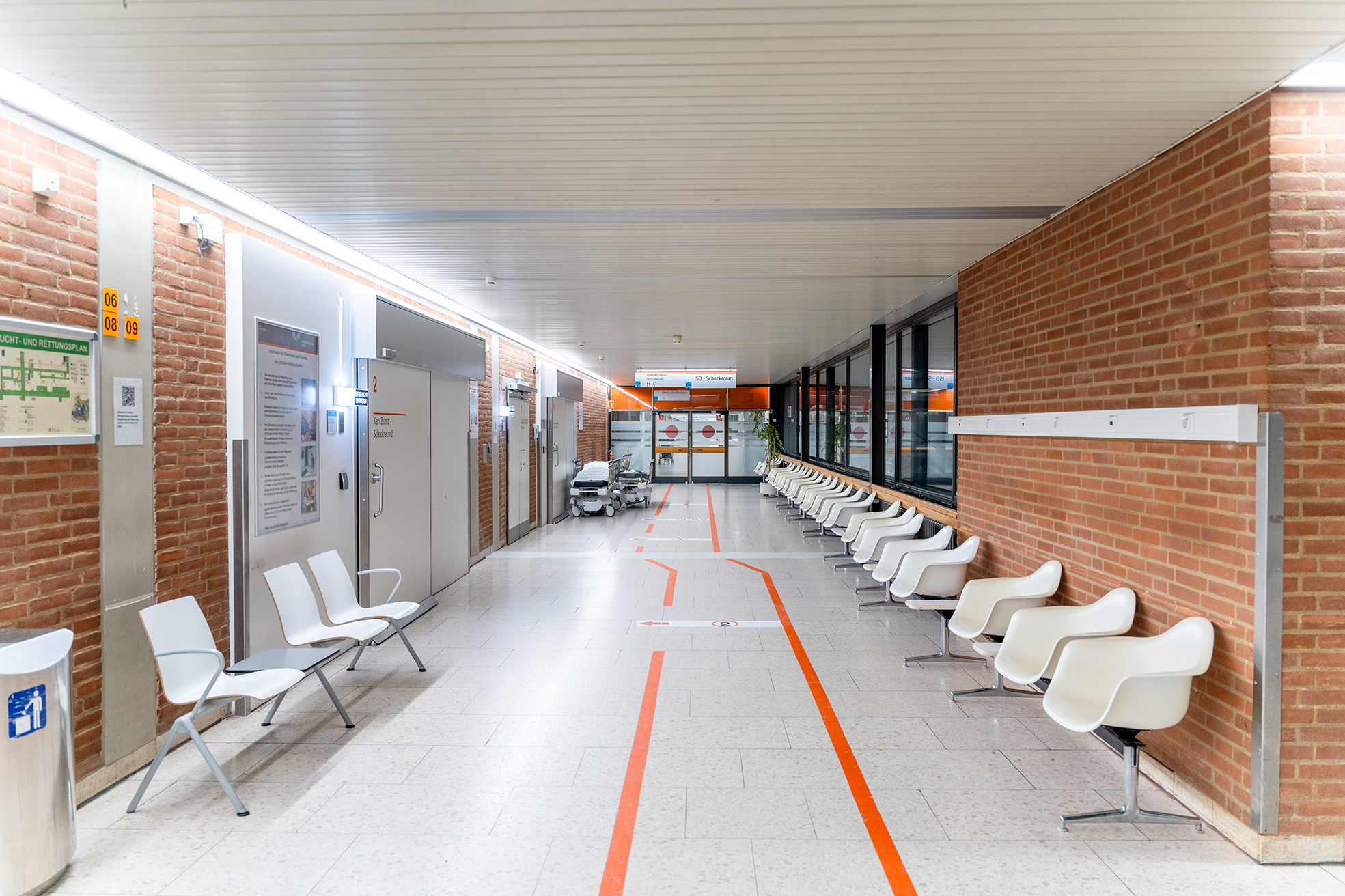Challenge met: while a bomb from the Second World War was defused on the MHH's new building site, operations at the MHH continued as normal.

Hospital operations at the MHH were reduced to a minimum. Copyright: André Schweigler/MHH
After two years of preparation, the protection plan for the Hannover Medical School (MHH) came into effect today in the event of a bomb disposal – and it was a complete success. Although one of the two suspicious spots that were to be examined was not confirmed, the suspicion remained for the remaining spot. Therefore, the population around the new building field was evacuated.
Since an evacuation of the MHH is not possible, a protection plan had been developed. And when the clearing teams reported that the evacuation area was safe at midday, there were still 893 patients and 587 staff members at the MHH. "Everything went like clockwork and extremely smoothly," says Dr Bastian Ringe, deputy head of the Interdisciplinary Emergency and Catastrophe Medicine (INKM) staff unit and head of the hospital operations management (KEL).
While the bomb disposal unit defused an American five-hundredweight bomb from the Second World War behind a wall of 44 water-filled containers on the new building site, a girl was born in the delivery room of the MHH gynaecological clinic at 12:36: Leni Sophia. When the security area was lifted at 2:21 p.m., the MHH immediately returned to normal operation.
Many MHH departments worked closely with the explosive ordnance disposal service and the Hanover fire department for almost two years in a coordination team to develop the protection concept for the 24/7 operation of the university hospital. The following were involved: human resources management and the staff council, emergency and disaster medicine, nursing management, technology and logistics, occupational and patient safety, as well as the presidium and many other employees. "The protection concept was so effective mainly because the MHH is always prepared for all situations as part of its hospital alarm and deployment planning," explains Dr Ringe.
Text: Inka Burow